This premium content is exclusive to edie Members.
To find out more about edie Membership, please click below.
If you are an existing member, login here
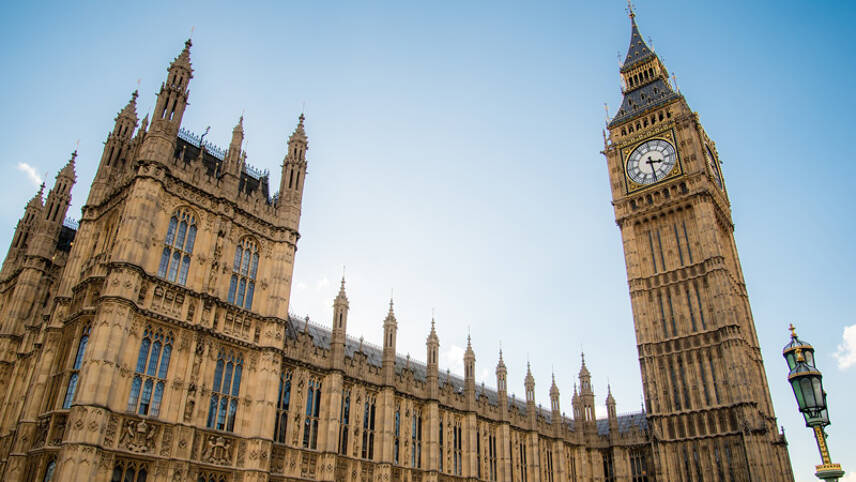
If you’re a regular edie reader, you’ll be aware that the editorial team was in Dubai for the UN-convened annual climate summit, COP28, earlier this month.
The summit ran almost a whole day beyond schedule, with a last-minute final text agreed upon following two weeks of debates about language on fossil fuels. As such, all eyes were on Dubai between 30 November and 13 December – and there is still much to do to unpack what the final agreement means for efforts to reduce greenhouse gas emissions, build climate resilience and restore nature in the real world.
While all of this was going on, we kept an eye on several significant green policy stories in the UK. Here, we round up seven stories from the past week in Westminster.
1) Hydrogen village trials axed as DESNZ firms up plans for blending and industry
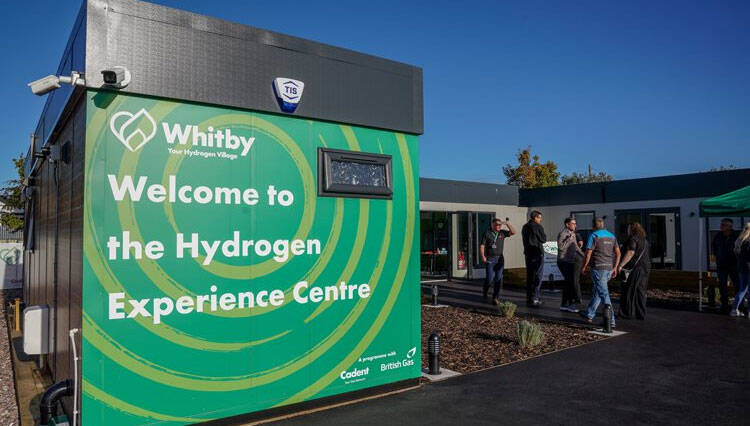
Image: Cadent
The day after COP28 concluded, the Department for Energy Security and Net-Zero (DESNZ) published a swathe of significant announcements on hydrogen production and use.
Ministers confirmed a strategic decision to support, in principle, the use of 20% hydrogen blends in the gas distribution network.
But DESNZ said this would not become a reality until further safety testing is completed – and the Department will not make a strategic decision on using 100% hydrogen until 2026 as originally pledged in 2021. It will make this choice based on results from trials but, after a ‘neighbourhood’ trial, a larger ‘village’ trial has not made it to fruition.
This summer, the UK’s first hydrogen village trial in Whitby was scrapped due to fierce local opposition. DESNZ stated that another village trial, set for Redcar, will be shelved as hydrogen generation has not come online on time. Other sources are attributing the change to local opposition.
The picture was clearer for hydrogen manufactured for use in industry. DESNZ allocated funding from its Hydrogen Production Business Model to 11 projects which, in most cases, co-locate green hydrogen production with consumption. Sectors benefitting include alcoholic beverage distilling, paper manufacturing and ports.
A further round of funding is now open for applications as part of the Government’s pledge to invest £2bn in low-carbon hydrogen this decade.
2) DESNZ set to open a second HQ in Scotland
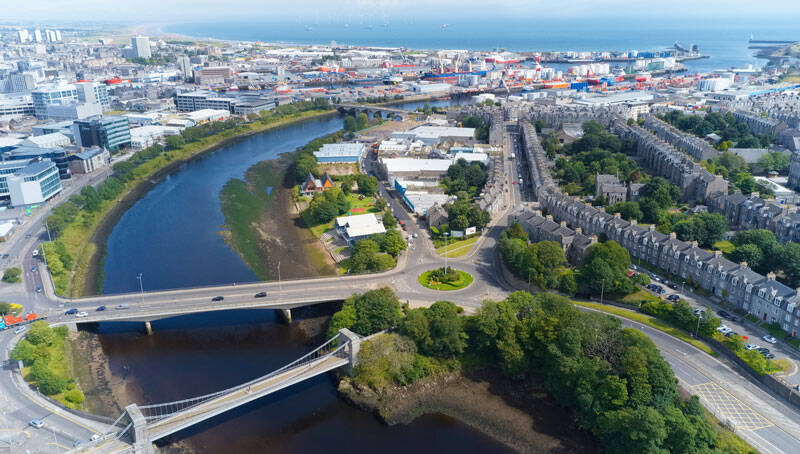
Pictured: The River Dee in Aberdeen
As part of the UK Government’s plan to relocate 22,000 roles out of London by 2027, a second DESNZ headquarters is set to be developed in Aberdeen.
The move will bring staff closer to Scotland’s oil and gas and offshore wind sectors. In a statement, the Government also said it had intentions of “further strengthening the Union” and “placing key decision-making roles in every corner of the UK”.
A specific location and an opening date have not yet been confirmed. Read edie’s full story here.
3) VAT relief for battery energy storage confirmed
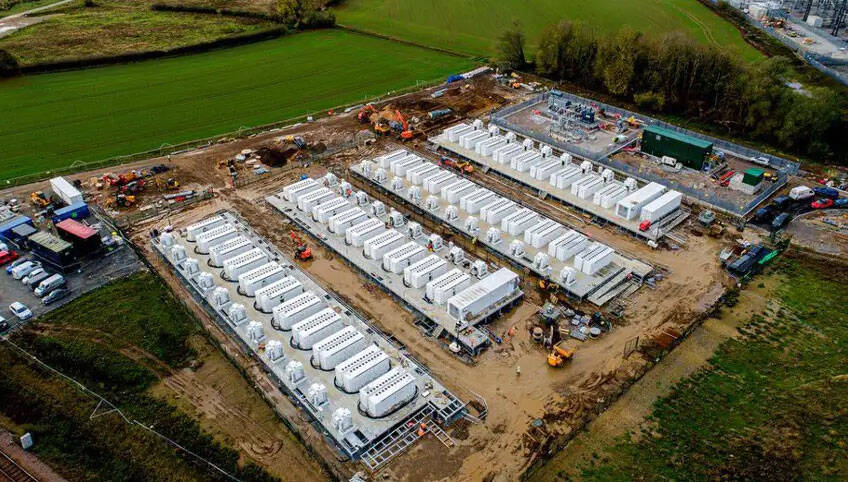
Pictured: A 98MW a 98MW battery energy storage project in Cottingham. Image: Harmony Energy
18 months ago, the UK Government announced VAT relief for energy-saving products like insulation and triple glazing. It also extended the tax break to home solar panels. VAT was cut from 20% to 5% from March 2022 for at least five years.
This past week, the Treasury extended this exemption to all battery energy storage systems, from small systems at homes to those suitable for large businesses, and even grid-connected, large-scale arrays.
The changes will take effect from 1 February 2024 and, for batteries, will be permanent.
Dr Nina Skorupska, chief executive of the Association for Renewable Energy and Clean Technology, welcomed the decision but called on Ministers to consider a further extension to electric vehicle charging points and thermal energy storage.
Skorupska said: “This finally aligns the VAT treatment of battery storage with other energy-saving materials, ensuring that VAT does not need to be paid when households are looking to do the right thing. Battery storage helps households to improve their energy efficiency, as well as make the most of other onsite generation technologies like solar panels and heat pumps. As such, it is a critical technology for both delivering decarbonisation and bringing down energy bills.
“This has been a long-term ask of the REA, and an area of unequal tax treatment that we are happy to see finally be resolved.”
4) Universal food eco-labels one step closer to fruition
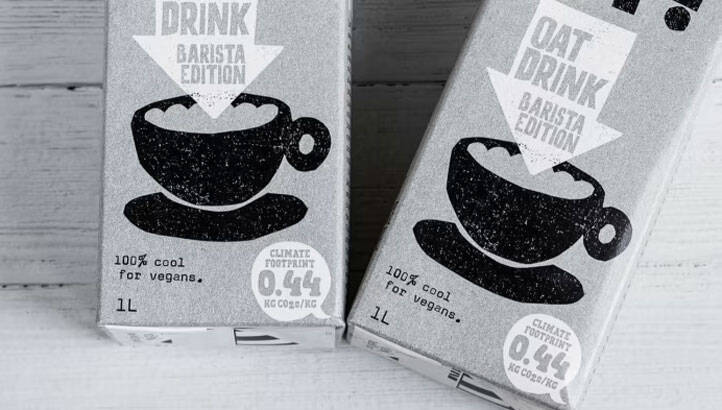
Image: Oatly. Pictured: Carbon footprint labels on cartons
The landmark Net-Zero Review authored by Chris Skidmore MP recommends that environmental labelling should be standardised on as many product categories as possible by 2025. Ministers have opted to start with industrial products like steel, but consumer-facing goods including food have been in the spotlight too.
Food labelling is a step closer to reality due to proposals sent to the UK Government on 7 December by the Institute of Grocery Distribution (IGD) – a charity that draws funding from the grocery industry.
The Institute is proposing labels that use red, amber and green lights plus an A-E grading system. Products would be given an overall score based on their life-cycle impact across greenhouse gas emissions, water footprint, water pollution and land use impact.
Some concerns are already arising. The Sustainable Food Trust has argued that the proposals are too simplistic and narrow, pandering to the interests of grocery retailers in particular. Compassion in World Farming is uneasy about the fact that most red meat will be automatically graded poorly, with producers potentially unsure of how to improve on-farm practices.
Watch this space for a consultation response from the Department for the Environment, Food and Rural Affairs (Defra) in 2024.
5) National Grid ESO delivers grid connection reform recommendations
The average process for developing a Nationally Significant Infrastructure Project like a large renewable or nuclear generation project swelled by 65% between 2012 and 2021. Without tackling contributing factors such as ageing infrastructure and outdated permitting processes, delays risk undermining the UK’s net-zero transition. Some 420GW of generation projects are currently waiting for grid connections.
Ministers are collaborating with the National Infrastructure Commission to identify and test potential interventions, in a process also involving actors such as regulator Ofgem and the National Grid Electricity System Operator (ESO). Interventions are also being assessed for smaller projects.
5 December saw the ESO setting out its final recommendations for reforming its long-term connections approach, confirming that it will implement a new connections queue process from the start of 2025. Changes include a requirement for all developers to prove that land has been identified and the landowner engaged.
The ESO will also start assessing the existing queue for “priority projects” that can be accelerated, after taking 5GW of stalled projects out of the line already.
The ESO’s head of networks and chief engineer Julian Leslie said the reforms “will align with wider government and regulatory policy and ensure the connections process is flexible and future-proofed to support the future coordination of network design”.
6) Ministers slammed Future Homes Standard consultation approach
Since late 2020, housebuilders have known that homes built in Britain from 2025 will need to comply with a Future Homes Standard. Ministers confirmed early on that homes would need to produce 75-80% lower carbon emissions compared to current builds, with reductions delivered by enhanced energy efficiency measures and either electric heating or ‘hydrogen-ready’ boilers.
The Government has this week opened a new consultation into the Future Homes and Buildings Standard, which will run until 6 March 2024.
The consultation seeks views on the role, if any, that gas and hydrogen-ready boilers could play in the new framework but expects heat pumps, electrification and district heat networks to be the dominant solutions in this area.
Additionally, the Government is debating whether to mandate the addition of rooftop solar on new-build homes.
The UK Green Building Council has been quick to criticise the consultation, lamenting the massive delays to the introduction of the standard – now slated for 2024 – and its lack of ambition. Read edie’s full story here.
7) Future Nuclear Enabling Fund allocation announced
The UK Government envisions 25% of the UK’s electricity mix coming from nuclear by 2050. This target was set in 2022 under the Energy Security Strategy. Achieving this will require the delivery of large projects, one of which should complete this decade, and small modular reactors (SMRs).
Rolls-Royce is a pioneer of SMRs but it is not without competition. On 8 December, DESNZ confirmed £30m of grant funding to support SMRs from Holtec Britain, to be allocated from the £120m Future Nuclear Enabling Fund.
This funding will be used to support the Generic Design Assessment of the firm’s SMR-300 units. It typically takes the Office for Nuclear Regulation four or five years for large-scale reactor designs, but Ministers are aiming to have this fast-tracked for SMRs.
Holtec International announced just days before the news from Westminster that a construction programme for its first two SMRs is now underway in Michigan, USA. It hopes to commission these two units in the early 2030s and is aiming to be the first firm to bring SMRs online in this market.
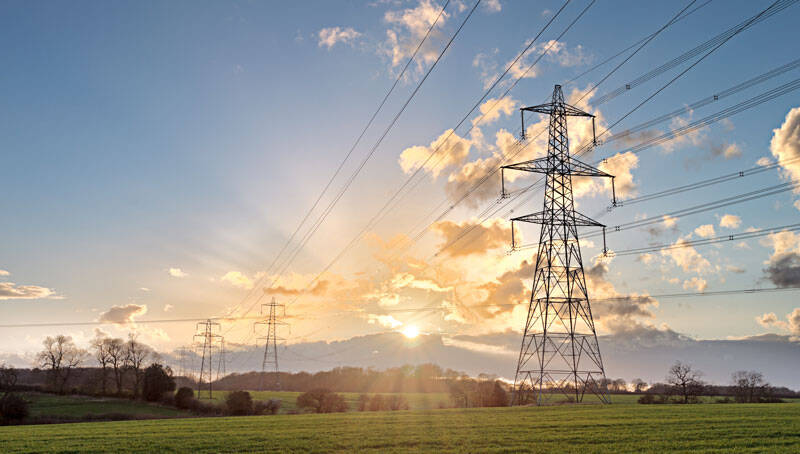
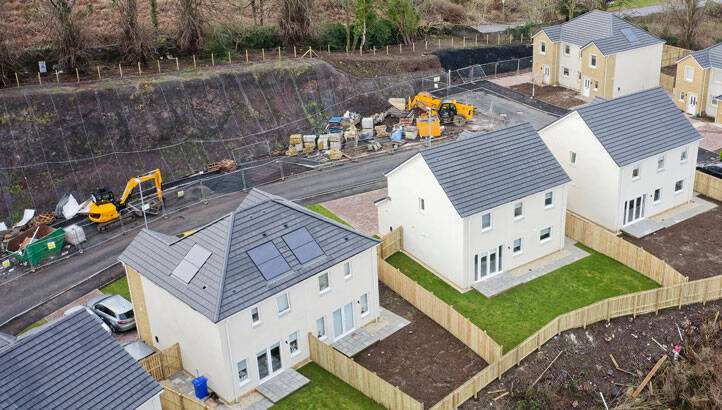
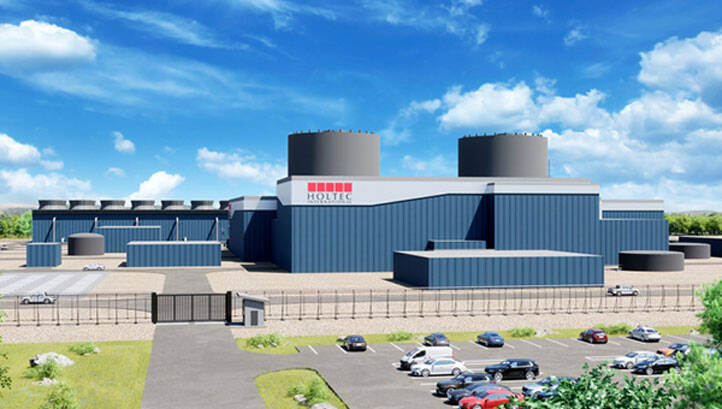


Please login or Register to leave a comment.